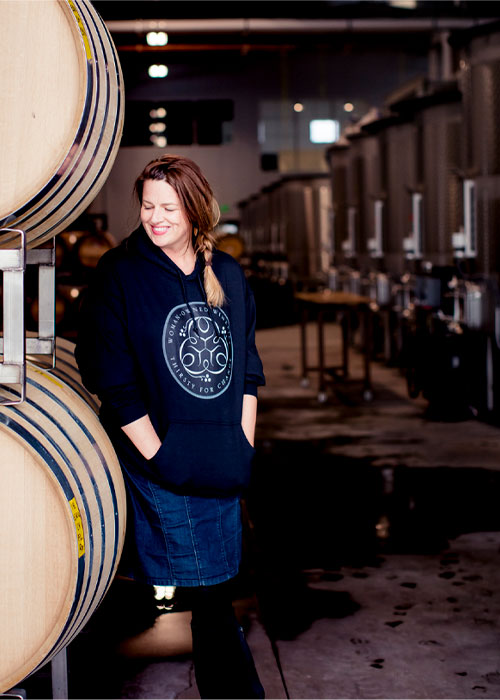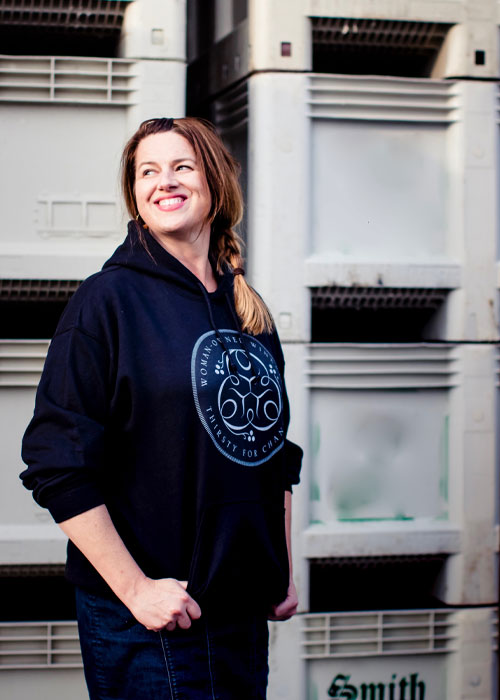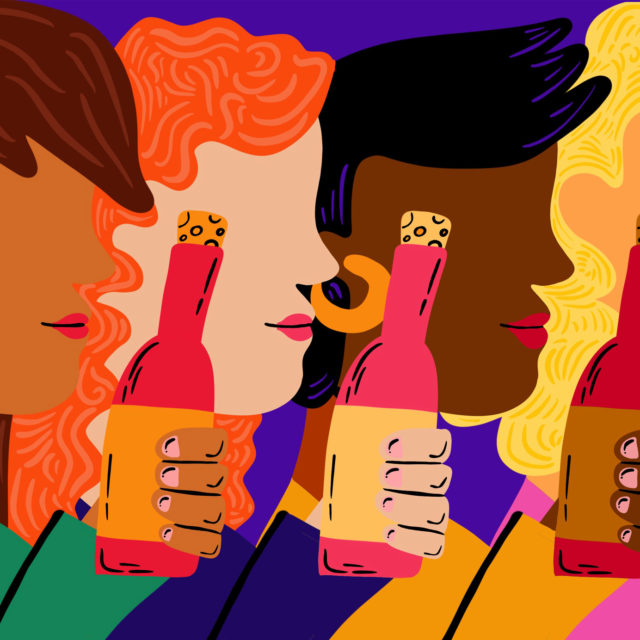In an era in which buying anything from a fried chicken sandwich to a pair of sneakers is inherently political, contemporary consumers are voting with their wallets. And on the cusp of the #MeToo movement in 2017, wine writer and communications consultant Amy Bess Cook tried to vote with hers.
“I knew that the only way to affect change was to see more women in power in the workplace and to give more money to women in the industry,” Cook says. “But when I went online and started to do my homework, and tried to identify woman-owned wineries to support with my own dollars, I’d find lists of maybe five or 10 wineries, max.”
Immediately frustrated, Cook took matters into her own hands. In October 2017, she launched Woman-Owned Wineries (WOW), an online directory of female-identifying wine entrepreneurs. What began as a personal passion project morphed into a movement: Initially including 50 female-owned, Sonoma-based wineries, WOW now boasts a list of 550 businesses nationwide, plus a wine club and an advocacy and storytelling platform uniting like-minded winemakers and drinkers.
Don't Miss A Drop
Get the latest in beer, wine, and cocktail culture sent straight to your inbox.“Cook has not only created the ecosystem to support women within the wine industry, but also created a pipeline directly to consumers,” Peter Weltman, sommelier, writer, and Borderless Wine creator, says. “And in an era when people have ethical standards about so many purchasing decisions, like food and coffee, she’s taken a known category and done the vetting for you.”

Katy Wilson, owner and winemaker at LaRue Wines in Sonoma, recalls how isolating it was coming up as a female winemaker. “When I was getting started in the early 2000s, you didn’t have a lot of women working in the vineyards,” she says. Wilson, who grew up on a walnut orchard and “had been driving a forklift my whole life,” says she faced gender bias at her first job. “There was a big burly guy from Australia working the vineyards with me. The assumption was that he knew what he was doing, and I didn’t,” she says.
Those biases, compounded with the lack of available funding and mentorship for female-identifying entrepreneurs, can be “really discouraging and hard,” Wilson says. “I think having platforms like WOW will inspire younger women to take the leap into this business because they know there’s support out there.”
According to Cook, men and women have been graduating from U.S. enology and viticulture programs in equal numbers since the 1990s, yet just 4 percent of the 4,000 wineries in her adopted state of California are female-owned, and 10 percent employ a woman as lead winemaker.
Additionally, she says, “It’s much harder to get funding for a business as a woman.” In 2018, female entrepreneurs received just 2.2 percent of all available venture capital dollars in the U.S. This further stacks the odds against women seeking capital for their wine businesses, she says, adding, “We also need for the larger systems and for men in power and with money to recognize the playing field needs to be leveled.”
Cook cites companies like Constellation Brands, which has a fund for beverage industry entrepreneurs, as well as the McBride Sisters Collection SHE CAN Professional Development Fund, which provides scholarships for continuing education and career development for women in wine, as examples of those larger systems. In addition, WOW connects female-owned wineries to conscientious, cause-oriented consumers, bringing her project full circle.
“From social media to e-commerce, she’s built an entire platform and community around women in the industry and is satisfying consumers’ desire to know the people and the ethics behind the product,” Cathy Hugye, co-founder of Enolytics, an analytics company for the wine industry, says. “Even I have learned about winemakers through this project that were not really on my radar before, like Alison Smith Story of Smith Story Wine Cellars and Ashley Trout of Vital Wines in Washington State.”

Participating wineries also say WOW directly impacts their businesses. “WOW has been a great addition to our day-to-day sales,” Ashley Trout, owner and winemaker of Vital Wines and Brook & Bull, says. Adds Wilson, “What Amy’s doing has brought more awareness to both me and my winery.”
Looking into WOW’s future, Cook hopes to build on the foundation of the existing network by adding small business support, webinars, moderated forums, marketing opportunities, and information-sharing about labor and pay equity. In addition, she is assembling a steering committee to develop a membership-based organization exclusively for women winemakers and business owners.
“While I initially conceived this as a way to connect consumers to women in wine, almost immediately after the directory was built it became apparent that it also has the ability to connect winemakers to one another,” Cook says. She believes a multifaceted approach is essential. “Small-winery owners typically play multiple roles: They can be in the vineyard at sunrise, on conference calls at lunchtime, and host a winery party by sundown… Professional organizations for winery leaders tend to completely miss this reality, catering to industry specialists and failing to consider the unique challenges of wine entrepreneurs,” she says.
She’s putting her money where her mouth is. Cook was named Imbibe Magazine’s 2019 Wine Person of the Year and continues to be outspoken about inequities and sexual harassment in the industry. “The response was overwhelming,” she says. “If there’s anything this project has contributed, it’s getting the conversation started.”
“Right now, women … are weaving this amazing web of support for each other in ways I haven’t seen in 20 years,” Trout says. “We’ve reached a critical mass where we can have fun with who and where we are … while making it exponentially easier for future ladies. WOW has been a critical puzzle piece in that realm.”
